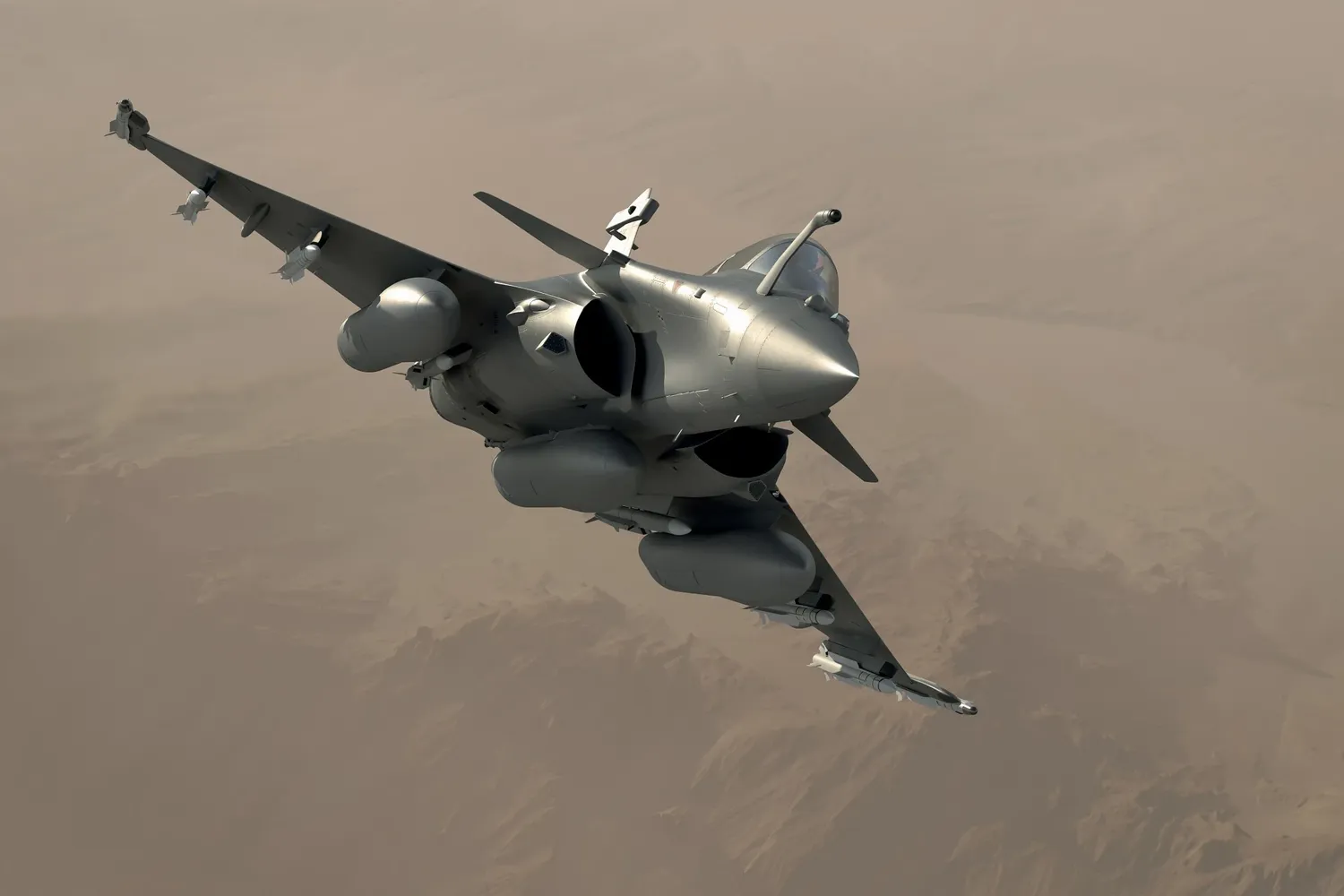Historical mega-contract: 80 Rafale and 12 H225M Caracal for UAE
Today, as part of the French President’s tour across the Persian Gulf countries, France and the United Arab Emirates signed contracts worth 17 billion euros for the purchase of 80 Rafale, 12 H225M Caracal, armament, and associated equipment.
This is a milestone mega-contract for France, as it is the largest French aircraft export deal up to date. With approximately $19.2 billion, it covers the sale of 80 Rafale fighter jets in its versión F4, the newest version of this fighter, that is currently performing French Armed Forces Ministry acceptance tests.
⏱60 secondes Défense!
? Aujourd’hui, la vente de 80 avions Rafale aux Émirats arabes unis :
✅ Le plus gros contrat d’armement de l’Histoire
✅ Un partenariat stratégique et militaire très dense pic.twitter.com/7fyBeqJ2ux
— Hervé Grandjean (@HerveGrandjean) December 3, 2021
The selection of the Rafale by the United Arab Emirates raises to 6 the number of countries acquiring this fighter aircraft, in addition to France.
«The Rafale F4, for which the Emirates Air Force will be the first adopter beyond France, will provide the UAE Armed Forces with a capable tool for guaranteeing sovereignty and operational independence,» Dassault reports in its press release. «This contract is the result of a comprehensive mobilization by Dassault Aviation together with the Emirates Air Force and is part of a trustful relationship of more than 45 years between the United Arab Emirates and our company, based on the Mirage family of combat aircraft, especially the Mirage 2000-9, whose modernization began two years ago.»
The agreement also considers the sale of 12 H225M Caracal helicopters configured for combat search and rescue (CSAR) operations as well as commando deployment for special operations.
MBDA, the European armament manufacturer, was also involved in the signing of contracts to arm Rafale fighter jets. The United Arab Emirates (UAE) is expected to integrate domestically developed smart armament from the EDGE group, which played an important role at the Dubai Air Show 2021.
Besides Dassault Aviatión, naturally, contracts were also signed with the manufacturer of the M-88 engine, Safran, and the manufacturer of Rafale’s electronics, Thales, as well as for the training, logistic support, etc..
All these contracts are part of a broader agreement between the two governments for stronger integration of economic, technical-industrial ties and particularly of their long-term strategic policies for the Middle East and, most likely, Africa.
What about the fifth generation?
Not to forget, the UAE is still in negotiations for the acquisition of the Lockheed Martin F-35. With the normalization of diplomatic relations with Israel, the deal had been made possible, and the documentation for the purchase had been approved by the former Trump administration. But the incoming Biden Administration pulled back the deal and ordered a review of the entire process, leaving the possibility of the F-35 joining the UAE Air Force on hold for now.
At the same time, the UAE made significant financial contributions that allowed the development of the Sukhoi Checkmate to reach its current state. For this reason, the second place where the presentation of this project was held was during the Dubai Air Show 2021. Without a doubt, Russia will try to maintain the UAE’s interest so that they continue to participate in the Checkmate and can turn this project of a Russian, single-engine, 5th generation, exportable fighter into a reality.

What does the mega-contract for 80 Rafale mean for Checkmate’s prospects, has Sukhoi lost a key investor? Has Washington put negotiations on hold and the UAE is no longer willing to wait?
Purchases such as these involve deep and long-standing economic, technical and diplomatic relationships. Given the general U.S. withdrawal from the Middle East to focus on the Pacific, does this imply that the UAE has chosen a new Western partner? Perhaps it will seek an alliance with both France and Russia?
In any case, it seems extremely doubtful that the UAE has the economic resources, or even logical, that after bringing in 80 Rafale, it would also acquire F-35 fighters and continue to fund the Checkmate. Russian or US 5th generation, one or the other, because the two are mutually incompatible; particularly at the security level of protecting sensitive technologies.
There is also a third option, whereby the UAE becomes the first export customer (or second-tier partner) of the future FCAS, by which France, Germany, and Spain are seeking to develop their 6th generation air combat system. With 80 Rafale F-4s, UAE could look to skip the 5th gen and go straight away for the next-generation fighter, which should start flying in 2035. The newly established ties between the two nations through this historic contract could allow the UAE to access the FCAS before any other non-original member country in the program.





Comentarios
Para comentar, debés estar registrado
Por favor, iniciá sesión